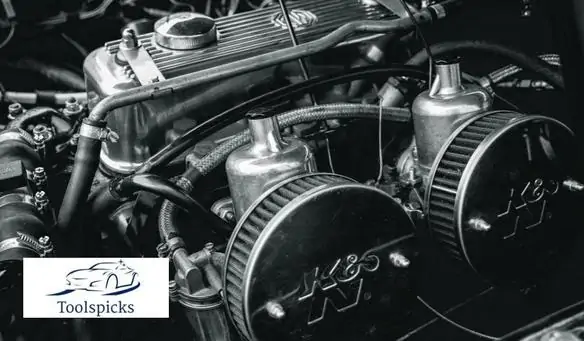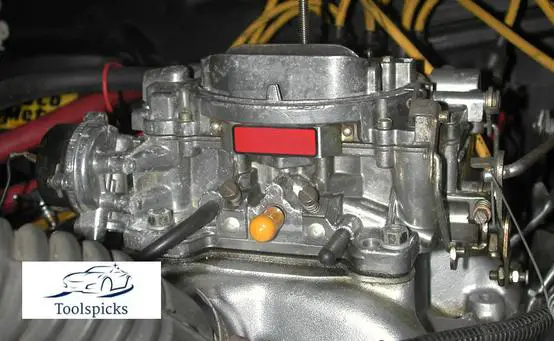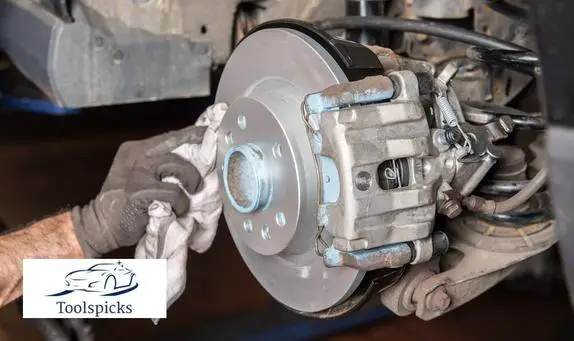Cars are made up of various components that become dirty after some time. If you think a single cleaning solution will work to clean the entire vehicle, you’re sadly wrong.
Each component needs to be treated differently. Therefore, each requires a specifically designed cleaner. For instance, you’ll want to cleanse your brakes using a specific solvent explicitly designed for them. This is why many different types of cleaners are available.
If you use the wrong cleanser for a particular component, you are at risk of causing severe damage. You’ll then have to shell out extra money to repair or replace damaged parts.
Selecting the appropriate cleaner for the correct component is cheaper and the right way to go. So, let’s quickly examine which cleaner you need to purchase and why. When you finish this post, you’ll be able to distinguish between brake cleaner and carb cleaner. Keep reading!
Carb Cleaner
To understand how carb cleaners work, it’s crucial to understand carburetors. It is one of the engine’s system components that mixes air and fuel within the combustion chamber. In addition to mixing fuel and air, it also needs to be balanced to carry out the process of combustion efficiently.
The exact position of the carburetor differs from vehicle to vehicle, but it must be located near the intake manifold and be connected to fuel lines.
Nowadays, fuel injection systems are slowly replacing carburetors on all vehicles, but certain vehicles still use carburetors. These injection systems usually provide an improved mixture of air and fuel and a quicker reaction to inputs from users.
If your vehicle has a carburetor, it is time to clean it with a carb cleaning solution.
How do they work?
This vehicle component can easily become clogged by debris, so you’ll require a cleaner to eliminate the grime and toughened carbons inside the carburetor. Be cautious when working because this can damage the vehicle’s painted surface due to the chemicals in the cleaning agent.
Carb cleaners contain significant chemical congestion as it allows you to remove carbons, buildup, and debris from your carburetor. If your car’s performance is declining, however, you should consult a professional.
Brake Cleaner
As the name suggests, you can use brake cleaners for your vehicle’s brake system. The brake cleaners can clean any material, pad dust, debris, dirt, brake fluid, oil, grease, or brake shoe.
How do they work?
Brake cleaners can dry out quickly and on all surfaces. In addition to brake systems, you can apply the brake cleaners to other parts of your vehicle. With the same cleaning agent, you can clean the shoes, brake drums, brake pads, and other car parts. The fluid comes in the form of a spray so that you can use it easily.
Unfortunately, this is where the confusion begins. Yes, you can use it on different parts, but it doesn’t always work. Always read the instructions on the product before use.
There are generally two kinds of brake cleaners on the market. While both are suitable to clean your brake components and other parts of your engine system, they do have some specifications that set them apart.
On the one hand, the chlorinated options are hazardous and highly aggressive to the human body because of its chemicals. For example, they contain Tetrachloroethylene which scientists have warned can potentially damage your skin.
In contrast, the non-chlorinated brake cleaner is less effective than the chlorinated one. Regardless of which option you choose, you should always wear gloves.
When using any brake cleaning fluid, be careful not to apply it to a surface coated with powder. This is to keep the powder from becoming sticky and ruining the beautiful appearance of your car.
Carb Cleaner vs Brake Cleaner: Overview/The Difference
Carb Cleaner | Brake Cleaner |
Ideal for cleaning carburetors. | Ideal for cleaning brake shoes, drums, and pads. |
| The carburetor cleaner can transform the process into sludge if you wear gloves. | Brake cleaners work perfectly even if you’re wearing gloves while cleaning. |
Carburetor cleaning products remove debris, dirt, and brake hardened carbons that could leave a bit of oily residue. | Brake Cleaner has been designed to clean dirt and oily fluids. |
| Carb cleaners will leave your clean parts without oil, extending the life of gaskets and seals. | The components that have been cleaned are left clean and dry, which is not great for gaskets or seals. |
| It is safe for use with automobile components of vinyl, neoprene, rubber seals, gaskets, and seals. | Brake cleaners aren’t safe with vinyl, neoprene, seals, rubber, and gaskets. |
FAQs
Can brake cleaner do the job instead of carb cleaner?
If you’re asking if a brake cleaner can do the job of a carb cleaner? Yes, it can, but it won’t do as good of a job as a carb cleaner. Brake cleaner is safe to apply to the carburetor and can remove dirt and oil just like carburetor cleaners do.
It is important to consider the differences between these solvent cleaners before using brake cleaner as a carb cleaner.
Is the throttle body cleaner similar to carb cleaner?
Every cleaner is meant specifically for a particular component, but you can use some cleaner as multi-purpose cleaners. The throttle body cleaner can clean carburetors, but it makes some compromises.
Can paint thinner be used to clean a carburetor?
Yes, paint thinner solvents can be used. They are used to lower the viscosity of paints and dissolve things. It can be employed to wash a variety of automotive components.
If you are considering applying this solvent to your carburetor, you need to remove all seals inside your carburetor before cleaning it, as it could cause harm to them.
Can Wd40 be a substitute for carb clean-up?
If you are thinking about whether you can clean the carburetor using WD40 in place of carb cleaner, the answer is YES! You can use it to clean every hole in the carburetor, but WD40 might be more efficient if you use its pressured value.
WD40 is an aerosol, and you can use it for all types of carburetors. Additionally, it is a quick-functioning cleaner comprising of an alcohol formula that can help you remove any hardened carbon.
Are brake cleaner and contact cleaner the same thing?
If you’re looking to replace brake cleaner with contact cleaner, then the answer is no. Using a brake cleaner instead of a contact cleaner changes the situation and it can damage your electronics. You can, however, use the non-residue contact cleaner instead of the brake cleaner but it is not as effective as a brake cleaner. Additionally, the contact cleaner is more expensive.
Conclusion
We’ve told you the key things you need to know regarding carb cleaner vs brake cleaner. Whatever you decide to put on your vehicle, you must not ignore the warnings and guidelines. Be careful not to take the more accessible route that may cause harm. Also, it is recommended to wear gloves, a mask, and safety goggles when working with these cleaners to keep yourself safe and having fun while cleaning your vehicle.



